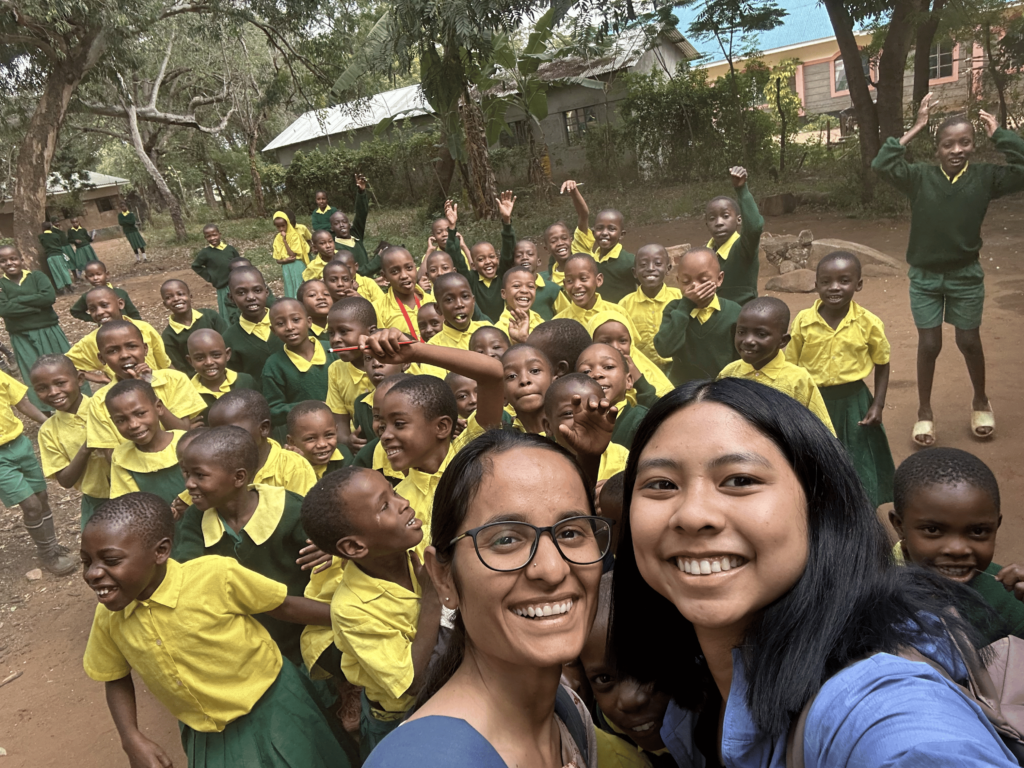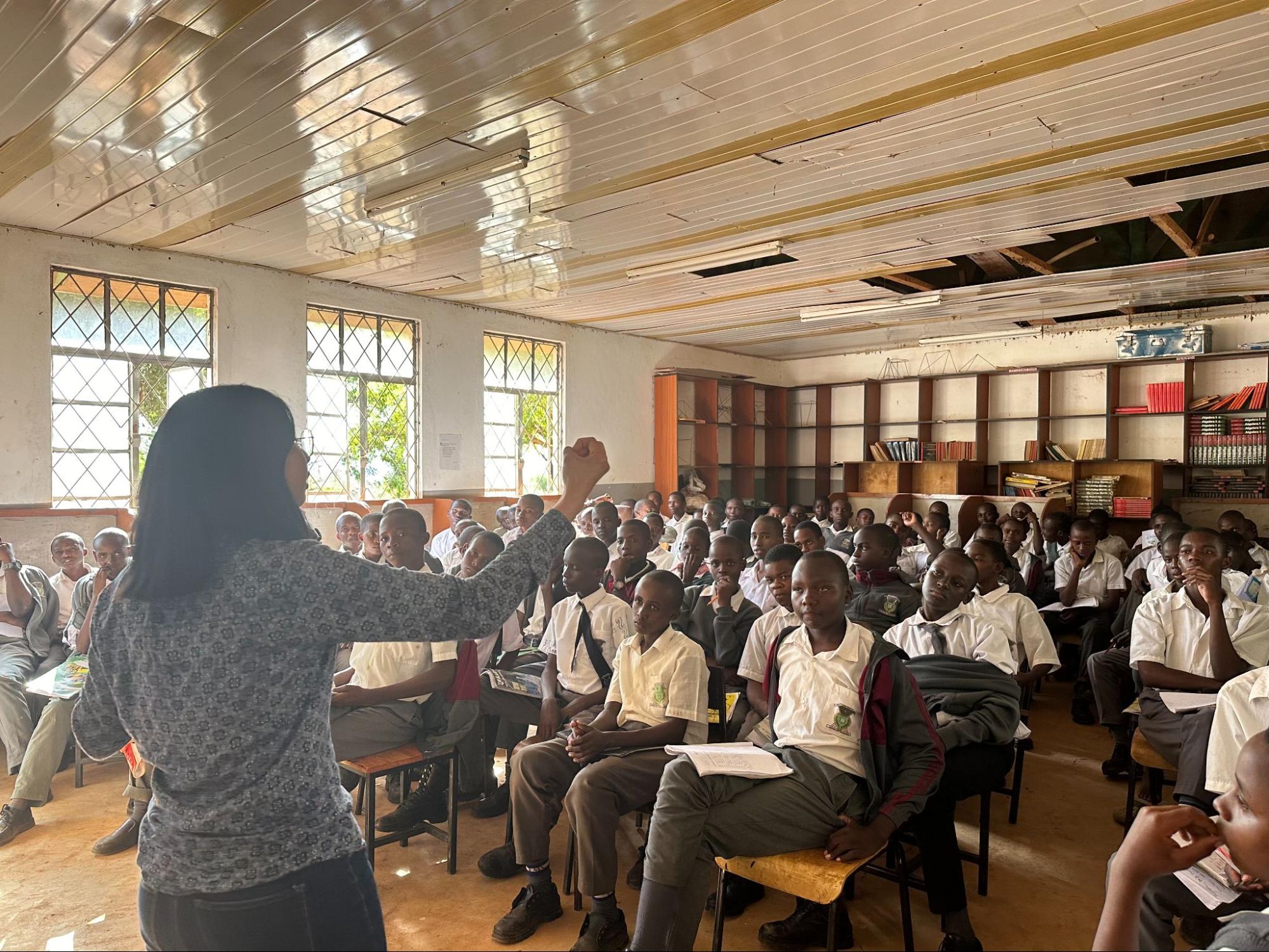Eight students from the Blum Center for Developing Economies at UC Berkeley will participate in the Clinton Global Initiative University (CGI-U) hosted at the George Washington University in Washington, D.C. starting on March 30th. All are part of the Blum Center’s “Global Poverty and Practice Minor,” the largest undergraduate minor on the Berkeley campus.
Students are selected to attend CGI-U based upon the quality of their “Commitment to Action” – a specific plan of action that addresses a pressing challenge — on their campus, in their local community, or across the world. Three of the Blum Center students have also been honored by an invitation to present their action plans to the audience.
Presenting their work will be:
Lauren Herman, a recent Cal graduate who majored in Peace and Conflict Studies, made a commitment to create informational material for Kenyan borrowers who are vulnerable to predatory lending. An attendee at last year’s CGI U, she will return this year to share the progress she’s made since last year’s commitment. Her work aims at helping Kenyan borrowers, who are often unaware of the loan conditions and their rights as consumers. To address this problem, Lauren has been working on a consumer education manual. This new resource will assist clients in making informed decisions about their participation in microfinance. It will be distributed in collaboration with consumer advocacy groups and microcredit borrowers in Nairobi.
Komal Ahmad, a fourth year student majoring in Interdisciplinary Studies and Jacquelyn Hoffman, a fourth year student majoring in Gender and Women’s studies, made a commitment to addressing inequitable distribution and injustice in the food system. Their organization, Bare Abundance (BA), collects excess food from on-campus dining halls and restaurants to redistribute to those who don’t have healthy food. They have developed an after-school program operating in Oakland and staffed by current UC Berkeley student volunteers. School children learn about the importance of a healthy lifestyle through BA’s experiential method, where participants prepare and consume the healthy food collected through the BA network. Komal and Jacquelyn aim to expand their afterschool program and hope to create food redistribution initiatives on other college campuses.
Attending for the first time will be:
Stephanie Ullrich, a fourth year student with a double major in Peace and Conflict Studies and Media Studies & Rebecca Peters, a third year student majoring in Society and Environment , made a commitment to a 3-part water initiative. They will create a Water Sustainability, Science, and Development minor at UC Berkeley to educate students on global hydro-politics, health and sanitation; they will expand membership in the Berkeley Water Group, an interdisciplinary student group that addresses problems related to water, sanitation, and hygiene; and they will create an academic water research journal and social marketing campaign to improve outreach.
Joanna Chen, a third year student majoring in Urban Studies, made a commitment to work with local NGOs to preserve the ecology of rural China. She will offer workshops on the environmental rights of villagers in rural areas. By engaging marginalized groups in education about their rights to a safe environment, Joanna hopes to spur local activism and encourage policy reforms that will protect the vulnerable environments of China.
Thuy Ngan Pham, a third year student majoring in Molecular Toxicology, made a commitment to develop a network to raise awareness and gather funding for student-run service organizations. SAnoda, a citizen organization, will develop an online database to connect students and faculty to the needs of the UC Berkeley service community. By linking student initiatives to their much-needed funding, SAnoda aims to increase the efficacy and frequency of social action.
Bernadette Rabuy, a second year student majoring in Political Economy, made a commitment to improve access to healthcare for villagers in Vadamanappakkam, India. Working with Project RISHI (Rural India Social and Health Improvement), she will help implement ‘RISHI Plug-Ins’— informational public service announcements meant to connect households with the self-help services of the village.
About the Blum Center for Developing Economies: Propelled by the energy and talent of faculty and students committed to helping the nearly three billion people who live on less than two dollars a day, the Blum Center is focused on finding solutions to the most pressing needs of the poor. Blum Center innovation teams are working to deliver safe water and sanitation solutions in eight countries; life-saving mobile services throughout Africa and Asia; and new energy technologies that emphasize efficiency while reducing negative environmental impacts. The Center’s Global Poverty & Practice minor is the largest undergraduate minor on campus, giving students the knowledge and real-world experience to become dynamic participants in the fight against poverty. In addition to choosing from a wide variety of new courses, students participate directly in poverty alleviation efforts in over fifty developing countries.



